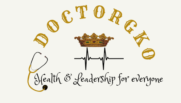Top Tips for Effective Decision-Making: A Guide to Intellectual and Personal Growth
Decision-making is an essential skill that plays a pivotal role in personal and professional success. Whether it’s choosing a career path, resolving conflicts, or planning your next steps in life, the ability to make sound decisions can significantly impact your quality of life. This article explores the importance of decision-making skills, their connection to intellectual health, and actionable tips to make wiser choices.
What Are Decision-Making Skills?
Decision-making skills involve the ability to analyze information, weigh alternatives, and select the best course of action. These skills are not limited to major life choices but extend to everyday decisions that shape our habits, relationships, and productivity. Strong decision-making requires critical thinking, emotional intelligence, and the confidence to act decisively.
Examples of decision-making skills include:
- Problem-solving: Identifying and resolving challenges effectively.
- Analytical thinking: Breaking down complex information to make informed choices.
- Risk assessment: Evaluating potential risks and rewards of various options.
- Emotional regulation: Managing emotions to avoid impulsive decisions.
Why Are Decision-Making Skills Important?
- Influence on Success and Productivity
Effective decision-making helps you set priorities, manage time, and achieve goals. It minimizes wasted effort and ensures that your actions align with your objectives.
- Improves Relationships
Sound decisions can foster better communication, resolve conflicts, and strengthen personal and professional relationships. Whether in a team setting or personal life, collaborative decision-making builds trust and mutual respect.
- Reduces Stress and Anxiety
Clarity in decision-making reduces uncertainty and anxiety. Knowing that you’ve made a well-thought-out choice can provide peace of mind and confidence.
- Enhances Intellectual Health
Decision-making is deeply tied to intellectual health, which involves the ability to think critically, learn from experiences, and adapt to new situations. By honing your decision-making skills, you engage your cognitive abilities and keep your mind sharp.
How Decision-Making Relates to Intellectual Health
Intellectual health refers to the active pursuit of knowledge, critical thinking, and lifelong learning. Decision-making skills are integral to this concept, as they require:
- Critical Analysis: Evaluating evidence and understanding complex situations.
- Continuous Learning: Learning from past mistakes to improve future decisions.
- Adaptability: Adjusting to new information and changing circumstances.
- Problem-Solving: Finding innovative solutions to challenges.
Engaging in these cognitive processes not only improves decision-making but also promotes mental acuity and resilience. Individuals who consistently make informed decisions often experience greater confidence, reduced mental fatigue, and enhanced problem-solving capabilities.
Tips to Make Wise Decisions
Mastering decision-making requires practice, self-awareness, and a structured approach. Here are some actionable tips to help you make better choices:
- Define Your Goals
Before making a decision, identify your objectives. Ask yourself:
- What am I trying to achieve?
- How does this decision align with my long-term goals?
Having a clear sense of purpose helps you stay focused and prioritize effectively.
- Gather Information
Make informed decisions by collecting relevant data and considering multiple perspectives. Avoid relying solely on assumptions or incomplete information.
- Weigh the Pros and Cons
List the potential benefits and drawbacks of each option. Visualizing the trade-offs can clarify which choice aligns best with your goals.
- Consider the Consequences
Think about the short-term and long-term implications of your decision. How will it affect you and others involved?
- Trust Your Intuition
While logic is crucial, intuition also plays a role in decision-making. Listen to your instincts, especially when you have experience or expertise in the matter.
- Avoid Decision Fatigue
Making too many decisions in a short time can lead to fatigue and poor judgment. Prioritize important decisions and delegate or simplify less critical ones.
- Manage Emotions
Emotional reactions can cloud judgment. Practice mindfulness and emotional regulation techniques to stay calm and focused.
- Seek Advice
Don’t hesitate to consult trusted friends, mentors, or colleagues. External perspectives can provide valuable insights and help you see blind spots.
- Set Deadlines
Overanalyzing can lead to indecision. Set realistic deadlines to ensure timely and efficient decision-making.
- Learn from Mistakes
Every decision offers an opportunity to learn. Reflect on your past choices to identify areas for improvement and build confidence for future decisions.
Overcoming Challenges in Decision-Making
Even skilled decision-makers face challenges. Here are some common obstacles and strategies to overcome them:
- Fear of Failure
Fear of making the wrong choice can lead to paralysis. Remember, no decision is entirely risk-free. Focus on making the best choice with the information available.
- Overthinking
Overanalyzing can create unnecessary stress. Limit the amount of time you spend deliberating and focus on actionable steps.
- Biases
Cognitive biases can distort judgment. Be aware of tendencies like confirmation bias or emotional attachment, and strive for objectivity.
- External Pressures
Societal or peer pressure can influence decisions. Stay true to your values and priorities, even when others disagree.
- Lack of Confidence
Self-doubt can hinder effective decision-making. Build confidence by celebrating small successes and trusting your abilities.
The Long-Term Benefits of Strong Decision-Making Skills
Cultivating decision-making skills offers lasting advantages, including:
- Improved Quality of Life: Wise decisions lead to better outcomes in health, relationships, and career.
- Increased Self-Efficacy: Confident decision-making strengthens your belief in your ability to influence outcomes.
- Greater Resilience: The ability to navigate uncertainty and adapt to change fosters resilience.
- Stronger Intellectual Health: Engaging in critical thinking keeps your mind sharp and supports lifelong learning.
Conclusion
Decision-making is a foundational skill that influences every aspect of life. By developing this skill, you enhance your intellectual health, reduce stress, and improve your ability to achieve personal and professional goals. Start by defining your objectives, gathering information, and practicing self-awareness. Over time, your ability to make wise decisions will become second nature, empowering you to navigate life’s challenges with confidence and clarity.
How to Find Your Life Purpose: Unlock Meaning and Improve Your Health In today’s fast-paced and goal-oriented society, the concept of life …
“Hedonic Adaptation in Relationships: Signs, Causes, and How to Keep the Spark Alive” Hedonic adaptation, also known as the “hedonic treadmill,” refers …
“Joy vs. Happiness: Key Differences and Practical Tips for a Balanced, Fulfilling Life” Joy and happiness are often used interchangeably, but they …
Brain Fog Demystified: Causes, Risks, and Proven Strategies to Clear Your Mind Brain fog is a term used to describe a state …
Share this post: on Twitter on Facebook on LinkedIn





